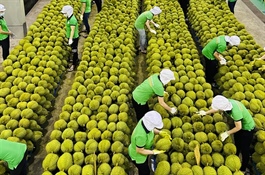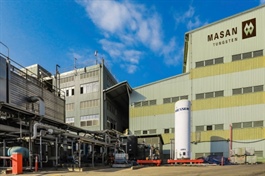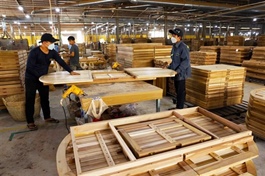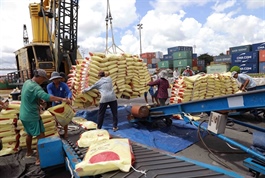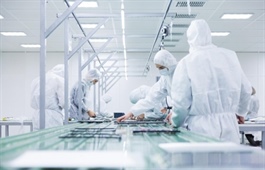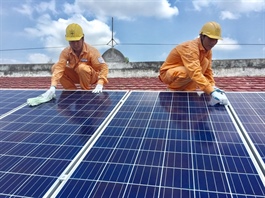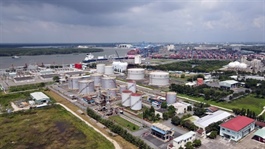Sugary drink tax adds to burden on struggling businesses, industry insiders say
Sugary drink tax adds to burden on struggling businesses, industry insiders say
Many companies in the sector have reduced production by 20-30 per cent, leading to workforce cuts and lower incomes. Some businesses, despite having annual budgets in the billions of đồng, have been forced to close their doors.
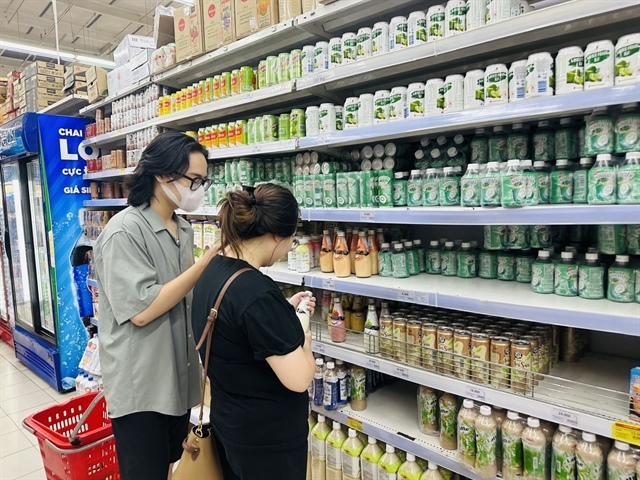
People buy drinks at a supermarket in Hà Nội. — Photo baotintuc.vn |
Industry experts have expressed concerns that the proposed special consumption tax on sugary drinks will further strain businesses already facing significant economic challenges.
Now they are calling on the government to reconsider proceeding with the implementation of the tax.
Nguyễn Văn Việt, Chairman of the Vietnam Beer—Alcohol—Beverage Association (VBA), said many companies in the sector have reduced production by 20-30 per cent, leading to workforce cuts and lower incomes. Some businesses, despite having annual budgets in the billions of đồng, have been forced to close their doors.
Việt said at a conference in Hà Nội on Tuesday that the VBA is calling for a delay in the proposed tax increase on alcohol and beer products, urging lawmakers to avoid dramatic hikes. They argue that postponing the tax would help mitigate the negative effects on businesses, providing them with a better opportunity to recover, expand and contribute to economic growth in the coming years.
Currently, the beverage industry contributes approximately VNĐ60 trillion annually to the national budget and supports millions of jobs. However, the VBA warns that the higher tax rate scheduled for 2026 could severely affect not only the beverage sector but also 20 other related industries.
Nguyễn Hoàng Giang, General Director of Saigon Beer Trading One Member Limited Liability Company (SATRACO) under Saigon Beer - Alcohol - Beverage Corporation (SABECO), said that the beer industry continues to face significant challenges following the COVID-19 pandemic.
Ongoing global trade disruptions and geopolitical tensions have further strained supply chains, pushing production costs higher. At the same time, domestic beer consumption has declined, in part due to the impact of several regulatory policies, Giang said.
He echoed the recommendations of the VBA, suggesting that both the rate and the roadmap for the tax increase be adjusted.
Impact on economic growth target
National Assembly Delegate Phạm Văn Hòa of Đồng Tháp Province has urged caution regarding the proposed special consumption tax on sugary soft drinks.
He emphasised that now is not the right time to include such products in the taxable category, citing two key reasons. The first is that sugary beverages are not the primary cause of overweight and obesity, and businesses, especially in the beverage sector, have yet to fully recover from the impacts of the COVID-19 pandemic.
Hòa noted that beverage companies have made significant contributions to the State budget revenue and economic growth in recent years. He warned that imposing a tax could lead to reduced production and business contraction, thereby negatively affecting national revenue and economic momentum.
Echoing these concerns, economic expert Cấn Văn Lực said that the National Assembly has approved a target of 8 per cent GDP growth in 2025, laying the groundwork for potential double-digit growth between 2026 and 2030.
To reach these ambitious goals, Lực stressed the importance of policies that support businesses as key drivers of economic and social development. In this context, imposing a special consumption tax on sugary soft drinks is not appropriate, he said.
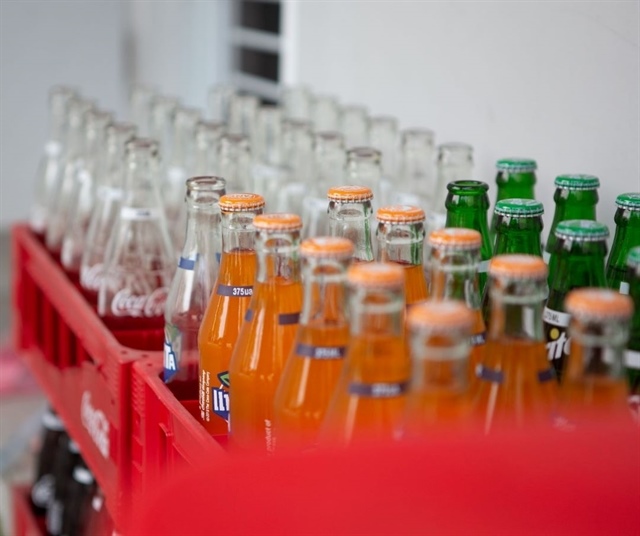
People buy drinks at a supermarket in Hà Nội. — Photo baotintuc.vn |
Changing consumption trends
Meanwhile, Economist Nguyễn Quốc Việt of VNU University of Economics and Business has raised concerns about potential unintended consequences of the proposed special consumption tax on sugary drinks.
According to Việt, taxing branded and sourced beverages could drive consumers toward cheaper, unlabelled alternatives sold publicly, many of which may contain even higher levels of sugar and pose serious health risks.
He notes that while the 10 per cent tax could reduce the consumption of sugary drinks by an estimated 20 per cent, it may not lead to a reduction in overall sugar intake. Instead, consumers may simply switch to less-regulated products. This shift not only undermines the public health goals of the tax but could also result in a loss of tax revenue for the State while exposing consumers to greater health hazards from unverified products.
The Ministry of Finance has submitted the draft of the amended Special Consumption Tax Law to the National Assembly for review during its 8th Session in 2024. The draft is expected to be presented for approval at the 9th Session of the 15th National Assembly, scheduled to open in May 2025.
One of the most debated provisions in the draft law is the inclusion of sugary soft drinks - those containing more than 5g of sugar per 100ml, based on Vietnamese standards - under the SCT category. The proposed tax rate is 10 per cent, aimed at curbing obesity and promoting consumer health.
However, health experts argue that sugary soft drinks are not the primary cause of the issue. According to specialists, the root causes of overweight and obesity lie in unbalanced diets, poor sleep habits, lack of physical activity, and the consumption of calorie-dense foods, not sugary beverages alone.
- 07:23 24/04/2025







